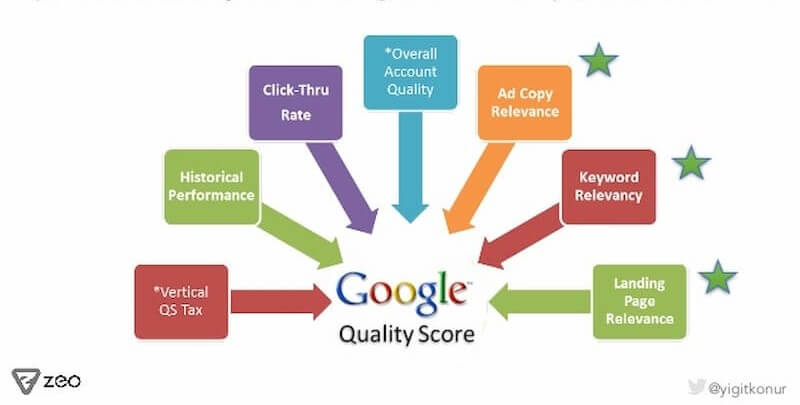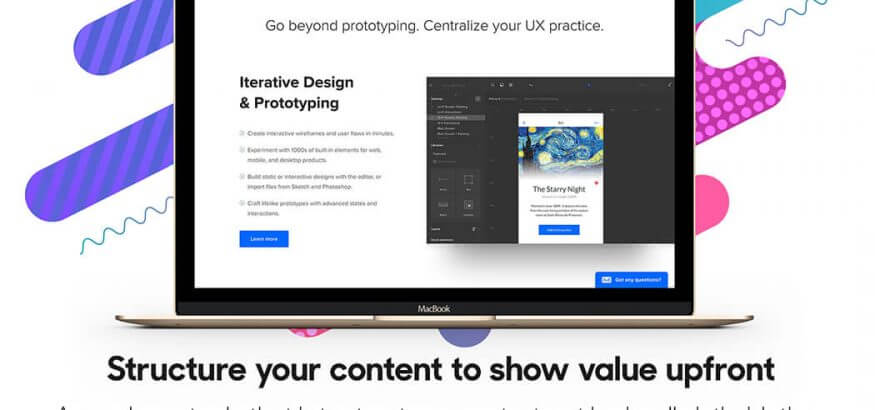Quality Score: What It Means and How It Affects PPC



Are you looking to get an in-depth understanding of PPC?
Then there are some concepts you need to get familiar with. Quality Score is number one on the list.
Why?
Google Quality Scores have a great influence on the cost and overall return of your paid search campaigns.
What is Quality Score?
In simple terms, it’s a universal rating that’s used by Google to regulate the effectiveness of your keywords and PPC adverts based on how relevant they are. It’s similar to how your credit score determines if you can apply for a particular loan or how much your interest rate will be.
Also, your Quality Score is used as a metric to judge your PPC ads performance and determine how much you pay for each click.
On another hand, it is used to deduce your cost per click (CPC), which is multiplied by your maximum bid to find out the rank of your ad in an ad auction.
Factors That Can Affect Quality Score



There are many factors that influence how well your Google Quality Score can turn out to be. In no particular order, they are:
- Ad text Relevance
- Click-through rate
- Adwords historical account performance
- Cross-relevance of every keyword with their ad group.
- Quality and Importance of your Landing Page
One thing to note is that there is no known degree to which each of these factors affects your Quality Score. They all play important roles in determining its value.
However, your click-through rate is expected to have the highest impact on quality score. Google recognizes ads with a high click-through rate as relevant, and in effect, rewards them with higher rankings and lower costs.
How important is Your Quality Score?
Wordstream carried out a study on thousands of PPC accounts and revealed that Quality Score is directly connected to PPC success. You can get much return on investment (ROI) just by maximizing your Quality Score.
This is attainable because there’s a correlation between a high-Quality Score and low cost per conversion (not the same as cost per click). Cost per conversion is the amount you pay for every conversion of your ad not a click on it. As expected, it tends to be higher than cost per click (CPC).
The good part of this is that a good quality score reduced the cost of both cost-per-conversion and cost-per-click. Not just that, Google will generally charge you less for your ad click as long as your PPC ads are relevant.
In the end, it all boils down to how relevant Google finds your ads to meet the needs of your potential customers.
Tips on Improving Your Quality Score
It’s important that you increase your Quality Score, especially since it’s a reflection of the urgency of your ads. Here are some tips on improving your Quality Score:
#1 Good Keyword Research
Perform quality research on new keywords that are of high importance to your campaigns and can help you generate high traffic.
#2 Structured Keyword Organization
Organize your keywords into discrete groups with better ties to individual ad campaigns.
#3 Clear Ad Text
Take time out to refine your Ad text. Try out PPC ad copies that are better suited to your Ad groups. Remember that relevant ads get higher Click-through rates, which in turn, increases your Quality Score.
#4 Engaging Landing Page



There are many landing page practices that many consider being golden tactics for creating pages that are directly connected to ad groups. Make sure to use them to help your visitors get a cohesive experience, which translates to a high conversion rate for your ads.
#5 Weed Out Negative Keywords
No matter how many times you go through your ad setups, you’ll always find search terms that are not important to your visitors. So, you need to form a habit of identifying and removing these terms to prevent wastage of funds.
Wrapping Up
Quality Score is a measure of relevance, and the way to increase its value is by fine-tuning your PPC campaigns into well-arranged and compact groups of keywords. The aim is to use highly relevant keywords that improve the quality of your ads and are relevant to your target audience.
Nobody really has an accurate formula for enhancing Quality Score. But one thing’s certain. Relevant content and keywords linked to engaging landing pages have proven effective.

